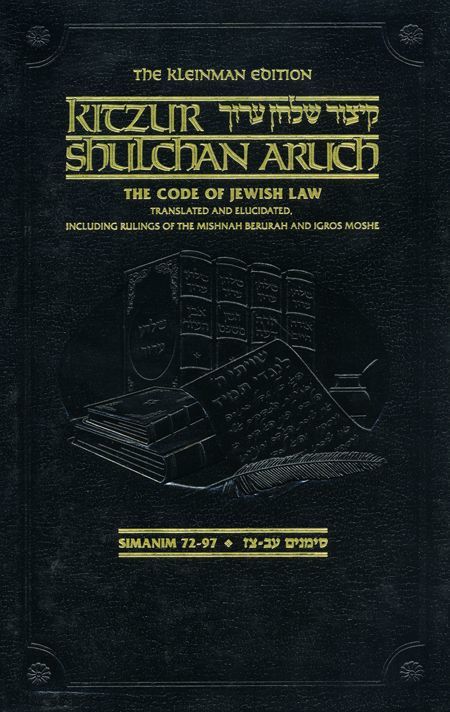
New Enthusiasm
Although we say the same prayers daily, increased awareness of Hashem’s goodness enables us to pray with a new enthusiasm, as if we’re saying the prayer for the first time.

“Sing to G-d a new song; let His praise be in the gathering of the pious.” (Psalms 149:1)
This psalm exhorts a Jew to continuously be inspired by life so that we will constantly be composing new songs of praise to G-d for all that He does for us and the world in general. Does this mean that we have to come up with new words and new tunes everyday to sing to G-d? Not necessarily; as in the case of the Shemonah Esrai, it is enough to say the same prayer each time, BUT, with NEW enthusiasm each time!
Here is an example of what this means:
Sunday:
Moshe: Boruch Hashem, this morning I found out that a company we have been pursuing for two years now wants to place an order for twenty-five units…
Aharon: You’re right! Boruch Hashem! That’s one of the single biggest orders this company has ever had!
Monday:
Moshe: Remember that order we spoke about yesterday? Well, they’re willing to take an extra five units, and pay cash if we can complete their order by next month … Thirty units!
Aharon: Wow! Boruch Hashem again! That’s even better than we thought. Let’s work to fill that order on time!
(Phone rings, and Moshe picks up.)
Moshe: Really? You’re kidding!
Aharon: What is it, Moshe? Who’s on the phone?
Moshe: It’s the company president of ABC…
Aharon: The company that’s placing that order?
Moshe: Yup, and it gets better. They’re so impressed with the product that they want to work out some kind of deal so that we will supply them on a yearly basis…
Aharon: Wow! Boruch Hashem!! That’s fantastic!
It was the same company making all the purchases, but, as the full extent of the order became apparent, Moshe’s and Aharon’s joy increased, as did their desire to praise G-d. It is a simple equation:
AWARENESS = SENSITIVITY = APPRECIATION = PRAISE OF G-D
Increase your awareness of G-d’s goodness, and you will enhance your sensitivity to how good He is to you, which, of course, will enhance your appreciation of His goodness and INSPIRE you to praise Him more often.
I remember quite clearly the time my wife gave birth to our daughter and first child. It was in a small hospital in Jerusalem, and, rather than be close enough to offer verbal support, my wife opted that I be in the next room saying Tehillim on her and the baby’s behalf, which I did. At the time, I was not a big Tehillim-sayer, but, being inept at helping my wife with her breathing exercises, it was the least I could do for her.
As Divine Providence would have it, I was in the midst of Psalm 136, and the long list of direct praises of G-d that we say Shabbos morning and in Hallel in the Haggadah. Being close enough to the delivery room to hear everything as it was happening, my intention became more intense as I heard the moment of birth approaching. It was the same psalm that I had been saying for years on Shabbos mornings, but somehow, the words gained added meaning THAT morning as the miracle of life unfolded before my very ears.
And then, right on the words, "… for His kindness is forever," I heard, "Waaaaaa, waaaaaaa, waaaaaa …" and I melted with joy and great, I mean GREAT thanks to G-d. Thirteen years later, ba"h, as I struggle to cope with the difficulties of bringing a teenager into this world, I still remember that moment with joy when saying the same words in the "Hodu" of Hallel, and count my blessings all over again.
And, I try to apply the same lesson to every day of life. It is the yetzer hara’s role in life to make life look grayer than it is, to make us focus on the fact that we lack the blessings of another person though we have our own, unique blessings. It is the yetzer hara’s goal — and he can be SO successful — to make the song of life seem repetitive, and therefore, uninspired.
It is our role and goal in life, as people made in the "image of G-d," is to reverse that instinct, and see past the apparent grayness of life, and to see each new moment as a gift. It is our job to increase our awareness of G-d’s goodness – even the parts we don’t understand and relate to them – and thereby, our appreciation of that goodness. This creates the inspiration for song — for new song – though the words of the praises be the same every day.
This was part of the lesson of the Mishkan (tabernacle)as well. After Moshe came down from Har Sinai with the commandment to build the Mishkan, the Jewish people understood what it meant: a physical place on earth in which the Shechinah would allow its Presence to be felt. It was a time for celebration and jubilation, and their enthusiasm was expressed in their bringing more gifts than was necessary to make the vessels for the Mishkan.
However, it is only later, after everything was assembled and put in place that the full impact of their achievement became clear to them, after the Divine Presence "came down" and placed its seal of approval on their work. The posuk says:
…Fire came forth from before G-d and consumed the Burnt-Offerings and the choice parts of the altar. When the people saw this, they sang out praise and threw themselves on their faces. (Vayikra 9:24)
New praise — they sang out NEW praise. It had been the same Mishkan, and the same vessels they had seen for months. But, the experience was new, as was the inspiration, and therefore, so was the song of praise. And, though, life is not always one big ball of inspiration, it can be if one trains himself or herself to see the goodness in life — the GIFT of life — and rise above the trappings of the yetzer hara.
(Author, lecturer, and scholar Rabbi Pinchas Winston is the director of ThirtySix.org. His book Be Positive is available for purchase online)











Tell us what you think!
Thank you for your comment!
It will be published after approval by the Editor.